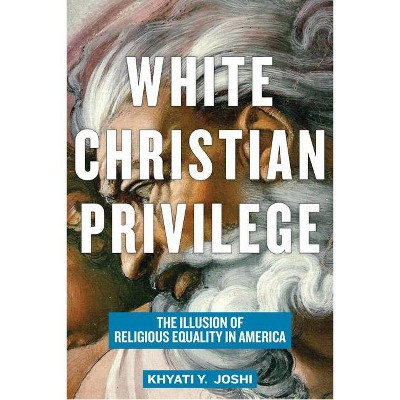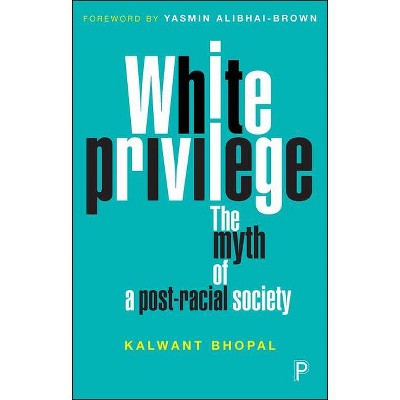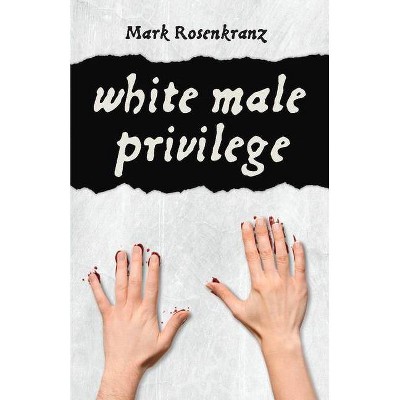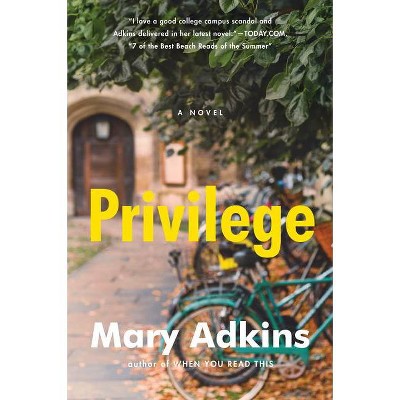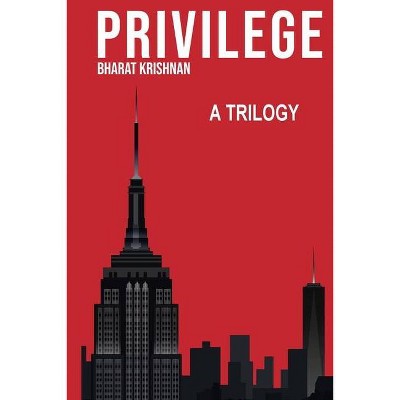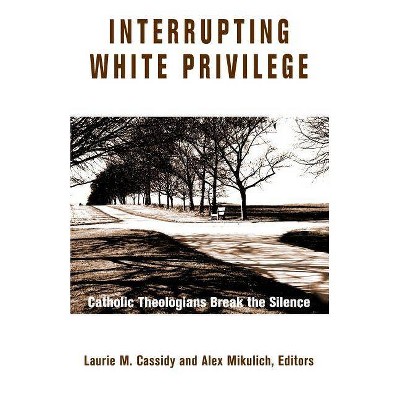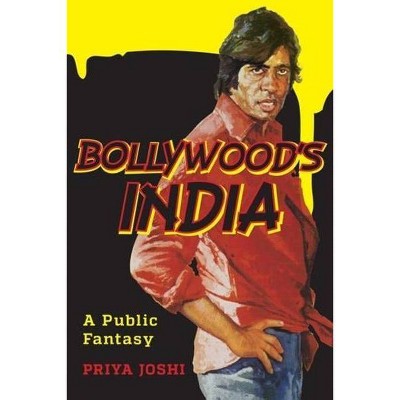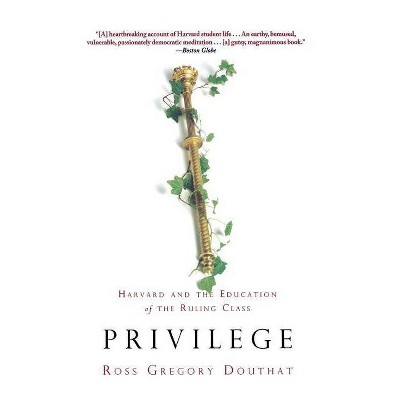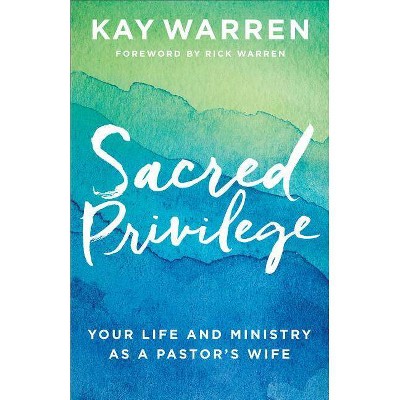White Christian Privilege - by Khyati y Joshi (Paperback)
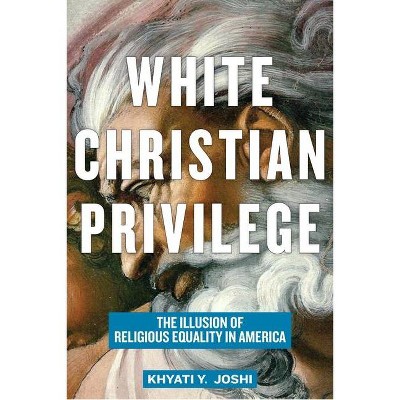
Similar Products
Products of same category from the store
AllProduct info
<p/><br></br><p><b> Book Synopsis </b></p></br></br><p><b>Exposes the invisible ways in which white Christian privilege disadvantages racial and religious minorities in America</b> <p/>The United States is recognized as the most religiously diverse country in the world, and yet its laws and customs, which many have come to see as normal features of American life, actually keep the Constitutional ideal of "religious freedom for all" from becoming a reality. Christian beliefs, norms, and practices infuse our society; they are embedded in our institutions, creating the structures and expectations that define the idea of "Americanness." Religious minorities still struggle for recognition and for the opportunity to be treated as fully and equally legitimate members of American society. From the courtroom to the classroom, their scriptures and practices are viewed with suspicion, and bias embedded in centuries of Supreme Court rulings create structural disadvantages that endure today. <p/>In <i>White Christian Privilege</i>, Khyati Y. Joshi traces Christianity's influence on the American experiment from before the founding of the Republic to the social movements of today. Mapping the way through centuries of slavery, westward expansion, immigration, and citizenship laws, she also reveals the ways Christian privilege in the United States has always been entangled with notions of White supremacy. <p/>Through the voices of Christians and religious minorities, Joshi explores how Christian privilege and White racial norms affect the lives of all Americans, often in subtle ways that society overlooks. By shining a light on the inequalities these privileges create, Joshi points the way forward, urging readers to help remake America as a diverse democracy with a commitment to true religious freedom.</p><p/><br></br><p><b> Review Quotes </b></p></br></br><br>'In order to form a more perfect Union, ' books such as <i>White Christian Privilege</i> add enormous value to highlighting the gap between illusion and reality.-- "New York Journal of Books"<br><br>Books that unpack problems in and questions about religion and race always feel timely in America; however, Joshi's intersectional and social justice-grounded approach makes this a necessary read for those who desire a more just America. The book's accessibility for students and the general public make its contribution all the stronger and more important-- "Religions Journal"<br><br>By the time you have finished reading Khyati Joshi's first chapter, in which she defines such things as 'separation of Church and State' and 'secularization' as optical illusions to mask the overwhelming dominance of Christianity in American culture, you wonder if you might have stumbled upon a gem. By the time you are finished, you might find yourself wondering if you've finished a new classic.-- "Journal of Interreligious Studies"<br><br>From the first page of <i>White Christian Privilege</i>, Khyati Joshi makes it plain that she is not interested in euphemizing. Nor is she interested in gently nudging her audience-- one comprised at least in part by, if not mostly by, the people whose privilege she is illuminating-- into a more aware mindset. Instead, Joshi wastes no time by acknowledging the truth.-- "Englewood Review of Books"<br><br>Illuminates the myriad ways that social structures, individual actions, and cultural assumptions have brought White Christians outsized power and freedom from responsibility. Thoughtful people of all races and faiths need to read and heed her words.--Paul Spickard, Distinguished Professor of History, University of California, Santa Barbara<br><br>Insightful and provocative. Taking a social justice approach, this timely book explores how Christianity has been leveraged to maintain and reproduce structures of domination and subordination, a discussion that is much needed and most welcome as debates about borders, migrants, and citizenship inflect public policy and civic engagement.--Zayn Kassam, John Knox McLean Professor of Religious Studies, Pomona College<br><br>Joshi explores how Christian privilege and White racial norms affect the lives of all Americans, often in subtle ways that society overlooks. By shining a light on the inequalities these privileges create, Joshi points the way forward, urging readers to help remake America as a diverse democracy with a commitment to true religious freedom.-- "Anthropology Book Forum"<br><br>Joshi explores the structures of white Christian privilege embedded in American institutions, laws, and culture ... insightful ... outlines examples of those who have the privilege but are blind to it, and some of the inequities suffered by uneven privilege. Recommended for readers interested in historical roots of religious freedom.-- "Library Journal"<br><br>Joshi views subliminal privilege in the common metaphors and underlying assumptions of our society. This privilege is sometimes Christian, sometimes White, and sometimes both. <i>White Christian Privilege</i>sets forth the history and the evidence for this privilege, and then proposes how to change it.--David R. Blumenthal, Jay and Leslie Cohen Professor of Judaic Studies, Emory University, retired<br><br>Looking at America's history--including slavery and westward expansion--<i>White Christian Privilege</i> explores how Christian privilege and white racial norms impact the lives of all Americans. The book demonstrates how Christian beliefs have been built into the Constitution and beyond, and the sometimes subtle and overlooked ramifications it has for religious minorities.-- "Publishers Weekly"<br><br>Smart and timely, energetic and approachable, this book is destined to be one of those touchstone texts that finds its way to a varied audience eager both to learn and to make meaningful change in American culture.--Philip Goff, Director, Center for the Study of Religion and American Culture, Indiana University-Purdue University Indianapolis<br><p/><br></br><p><b> About the Author </b></p></br></br><b>Khyati Y. Joshi</b> is Professor of Educartion at Fairleigh Dickinson University, author of <i>New Roots in America's Sacred Ground: Religion, Race, and Ethnicity in Indian America</i>, and co-editor of <i>Teaching for Diversity and Social Justice, Third Edition</i>.
Price History
Cheapest price in the interval: 16.99 on October 27, 2021
Most expensive price in the interval: 16.99 on November 8, 2021
Price Archive shows prices from various stores, lets you see history and find the cheapest. There is no actual sale on the website. For all support, inquiry and suggestion messages communication@pricearchive.us
